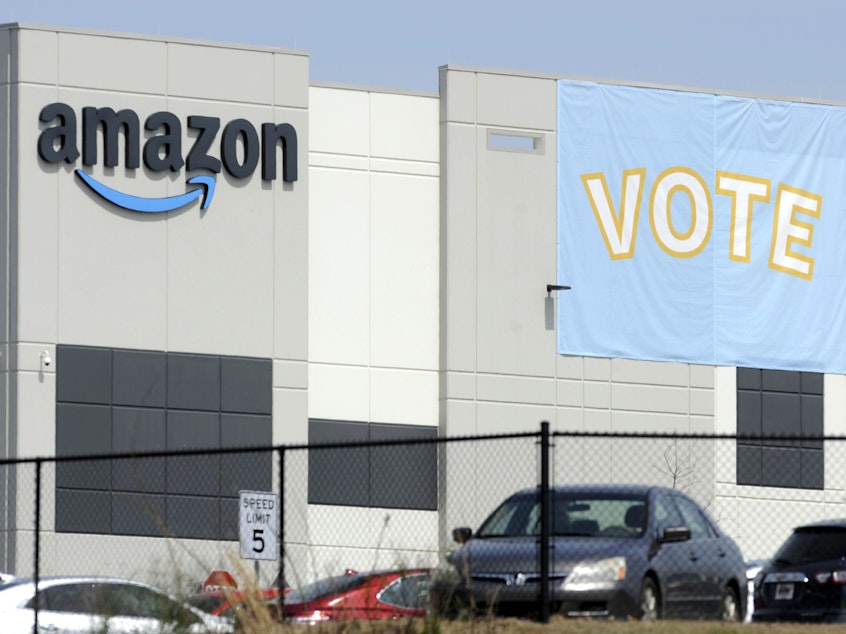Amazon unionization efforts get a boost under a settlement with U.S. labor board

NEW YORK — Under pressure to improve worker rights, Amazon has reached a settlement with the National Labor Relations Board to allow its employees to freely organize — and without retaliation.
According to the settlement, the online behemoth Amazon said it would reach out to its warehouse workers — former and current — via email who were on the job anytime from March 22 to now to notify them of their organizing rights. The settlement outlines that Amazon workers, which number 750,000 in the U.S., have more room to organize within the buildings. For example, Amazon pledged it will not threaten workers with discipline or call the police when they are engaging in union activity in exterior non-work areas during non-work time.
According to the terms of the settlement, the labor board will be able to more easily sue Amazon— without going through a laborious process of administrative hearings — if it found that the online company reneged on its agreement.
"Whether a company has 10 employees or a million employees, it must abide by the National Labor Relations Act," said NLRB General Counsel Jennifer Abruzzo, in a statement. "This settlement agreement provides a crucial commitment from Amazon to millions of its workers across the United States that it will not interfere with their right to act collectively to improve their workplace by forming a union or taking other collective action."
She added that "working people should know that the National Labor Relations Board will vigorously seek to ensure Amazon's compliance with the settlement and continue to defend the labor rights of all workers."
Amazon.com Inc., based in Seattle, couldn't be reached immediately for comment.
A labor scholar says the settlement is a big step by Amazon
Kent Wong, the director of the UCLA Labor Center, called the settlement "unprecedented" and said it represents a sea change in attitude at Amazon, which is known to deploy fierce measures against union activity at its warehouses.
"Amazon has been very consistent in holding a strong anti-union position, " Wong said. "This opens up a new opportunities for unionization there as well as at other companies."
Wong noted that the settlement comes as Amazon, the nation's second-largest private employer after Walmart, is on a hiring binge while facing organizing efforts at warehouses in Alabama and New York.
In November, the labor board ordered a new union election for Amazon workers in Bessemer, Alabama, based on objections to the first vote that took place in April. The move was a blow to Amazon, which spent about a year aggressively campaigning for the Bessemer warehouse workers to reject the union, which they ultimately did by a wide margin. The board had not yet determined the date for the second election, and it hasn't determined whether it will be conducted in person or by mail.
The campaign is being spearheaded by the Retail, Wholesale and Department Store Union.
Meanwhile, on Wednesday, the Amazon Labor Union, an independent group representing workers in New York's Staten Island borough, refiled its petition for a union election. The group of workers withdrew its first petition in mid-November to hold a vote to unionize after falling behind the adequate number of workers pledging support. Former Amazon employee Christian Smalls is organizing the effort in Staten Island without the help of a national sponsor.
The organizing drive is also happening during a moment of reckoning across Corporate America as the pandemic and ensuing labor shortage has given employees more leverage to fight for better working conditions and pay. Workers have staged strikes at Kellogg's U.S. cereal plants as well as at Deere & Co., to name a few. [Copyright 2021 NPR]

